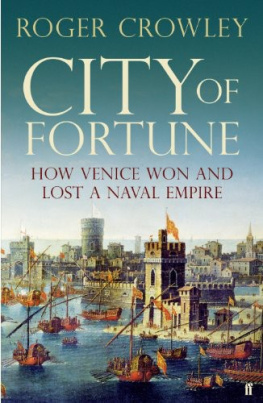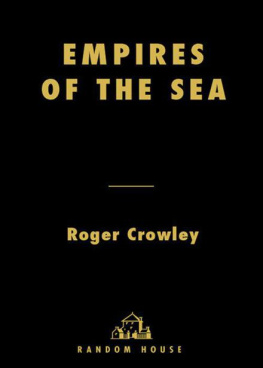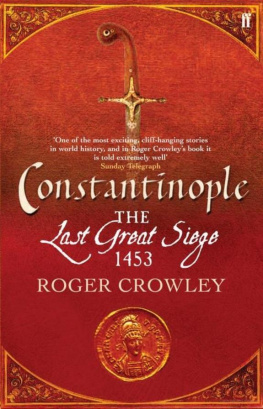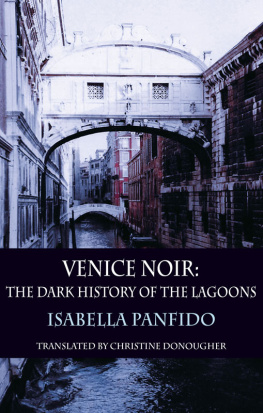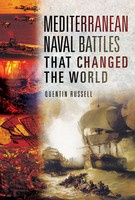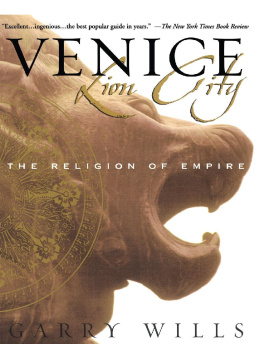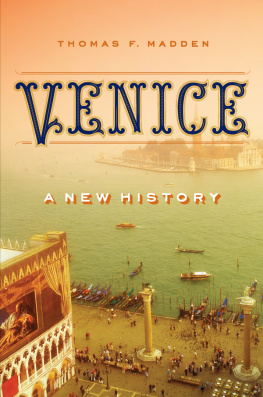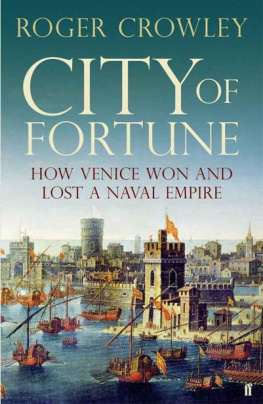ROGER CROWLEY
CITY OF FORTUNE
How Venice Won and Lost
a Naval Empire
For Una
The people of Venice neither have any foothold on the mainland nor can they cultivate the earth. They are compelled to import everything they need by sea. Its through trade that they have accumulated such great wealth.
LAONICUS CHALCONDYLES , fifteenth-century Byzantine historian
Illustrations in the plate section are reproduced by kind permission of the following: Roger Crowley (1, 7 and 12), Palazzo Ducale, Venice, Italy/The Bridgeman Art Library (2), Galleria dell Accademia, Venice, Italy/Cameraphoto Arte Venezia/The Bridgeman Art Library (3), akg-Cameraphoto (4), The Art Archive/Academia BB AA S Fernando Madrid/Collection Dagli Orti (5), IAM/akg/World History (6), The Art Archive/Private Collection/Gianni Dagli Orti (8), Igor Karasi/ Shutterstock Images (9), Andreas G. Karelias/Shutterstock Images (10), John Copland/Shutterstock Images (11), akg-Erich Lessing (13), The Trustees of the British Museum (14)

Venice

Italy and the Eastern Mediterranean 10001500

Constantinople during the Fourth Crusade 12031204

The Venetian Lagoon

The War of Chioggia June 1378December 1379

The Siege of Chioggia December 1379June 1380
Place Names in this Book
I have used a number of place names employed by the Venetians and others during the period covered by this book. This is a list of their modern equivalents:
| Acre | Akko (Israel) |
| Adrianople | E dirne (Turkey) |
| Brazza | The island of Bra (Croatia) |
| Butrinto | Butrint (Albania) |
| Caffa | Feodosiya on the Crimean peninsula (Ukraine) |
| Candia | Heraklion (Crete). The Venetians also used Candia to refer to the whole island of Crete. |
| Canea | Chania or Hania (Crete) |
| Cattaro | Kotor (Montenegro) |
| Cerigo | The island of Kythira (Greece) |
| Cerigotto | The island of Antikythira (Greece) |
| Coron | Koroni (Greece) |
| Curzola | The island of Korula (Croatia) |
| Durazzo | Durrs (Albania) |
| Jaffa | Now part of Tel Aviv: Tel Aviv-Yafo (Israel) |
| Lagosta | The island of Lastovo (Croatia) |
| Lajazzo | Yumurtalk near Adana (Turkey) |
| Lepanto | Nafpaktos (Greece) |
| Lesina | The island of Hvar (Croatia) |
| Modon | Methoni (Greece) |
| Naplion | Naflio or Navplion (Greece) |
| Narenta River | Neretva River (Croatia) |
| Negroponte | The Venetians used this name for both the whole island of Euboea, off the east coast of Greece, and its main town Halkida (or Chalkis) |
| Nicopolis | Nikopol (Bulgaria) |
| Ossero | Osor on the island of Cres (Croatia) |
| Parenzo | Pore (Croatia) |
| Pola | Pula (Croatia) |
| Porto Longo | Harbour on the island of Sapienza (Greece) |
| Ragusa | Dubrovnik (Croatia) |
| Retimo | Rethimno (Crete) |
| Rovigno | Rovinj (Croatia) |
| Salonica | Thessaloniki (Greece) |
| Santa Maura | The island of Lefkadtha or Lefkas (Greece) |
| Saray | The now vanished capital of the Golden Horde, on the river Volga, probably at Selitrennoye near Astrakhan (Russia) |
| Scutari | Shkodr (Albania) |
| Sebenico | ibenik (Croatia) |
| Sidon | Sada (Lebanon) |
| Smyrna | Izmir (Turkey) |
| Soldaia | Sudak on the Crimean Peninsula (Ukraine) |
| Spalato | Split (Croatia) |
| Tana | Azov on the sea of Azov (Ukraine) |
| Tenedos | The island of Bozcaada at the mouth of the |
| Dardanelles (Turkey) |
| Trau | Trogir (Croatia) |
| Trebizond | Trabzon (Turkey) |
| Tripoli | Trablous (Lebanon) |
| Tyre | Sour (Lebanon) |
| Zante | The island of Zakynthos (Greece) |
| Zara | Zadar (Croatia) |
| Zonchio | Later Navarino, the bay of Pylos (Greece) |
Prologue
DEPARTURE
Late in the evening of 9 April 1363, the poet and scholar Francesco Petrarch was writing to a friend. The Venetian Republic had granted the great literary figure of the age an imposing house on the waterfront overlooking the Basin of St Mark, from where he could survey all the rich hubbub of the citys port. Petrarch was drowsing over his letter when he was jolted rudely awake.
It was completely dark. The sky was stormy. I was tired when suddenly the shouting of sailors struck my ears. Remembering the meaning of this from previous occasions, I hurriedly got up and climbed to the top of this house, which surveys the harbour. I looked out. Good God, what a sight! At once touching, marvellous, frightening and exhilarating ! Here in the harbour there were some sailing ships which had moored at the marble quayside over the winter, as massive as this great house which the most generous of cities has put at my disposal. Their masts rise as high as its square corner towers. At this very moment, while the stars are muffled by thick cloud, while my walls are shaken by blasts of wind, while the sea roars and bellows horribly, the largest of them casts off on its voyage

